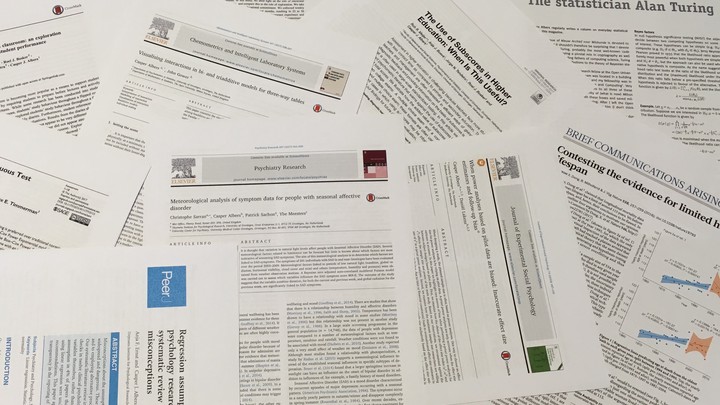The Greek philosopher Heraclitus coined the phrase “Panta rhei”, meaning “everything flows”. Everything changes, thus so do humans. To properly understand the processes behind human behaviour, it is of utmost importance to repeatedly measure the same variables in the same persios throughout a stretch of time. This way we can insight in the complicated aspects of human behaviour. This complexity shows itself by fluctuations in behaviour over time. These fluctuations depend on context, interindividual differences, and random disturbances. Understanding the dynamics of a psychological process is a key requirement to understanding the process itself.
Intensive Longitudinal Data (ILD)-designs are on the rise in psychology. Conventional statistical methods are not necessarily equipped for this type of data. My main research task is to develop statistical models for psychological longitudinal data and to demonstrate these models in social science-research. My main fields of application are psychopathology and environmental psychology.
Another branch of my research focuses on improving statistical practice within the social sciences. I’ve written various papers pointing at methodological flaws in scientific work and explaining what the consequences of these flaws are and how to avoid them. Furthermore, I study how to advise non-statisticians on how to improve their methodological practice. For this, I take into account how people use statistics, how people interpret statistical results and how people communicate about statistics.
Both lines of research meet in the field of data visualisation. I work with technically challenging models, with as goal to find answers to real-life problems from psychological research. To enable a good communication of the statistical results, data visualisation is of vital importance. I aim to study the psychological factors underlying the interpretation of data visualisation.
